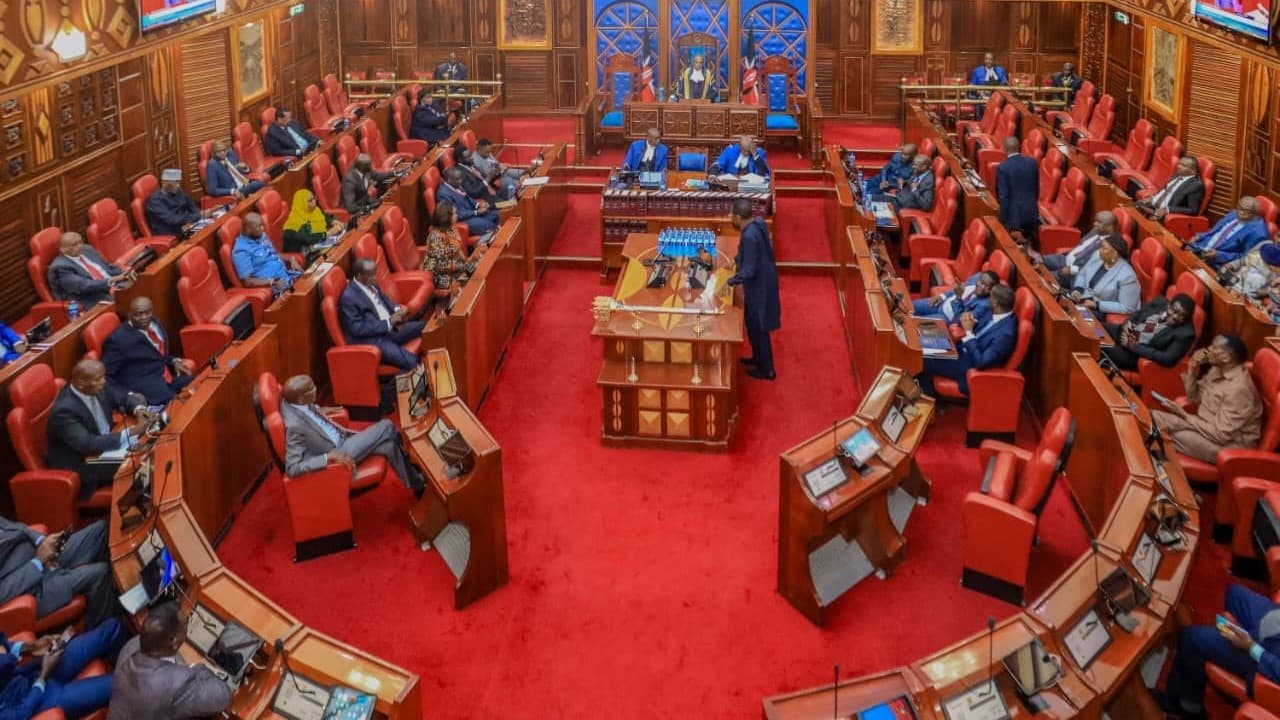We're loading the full news article for you. This includes the article content, images, author information, and related articles.
Parliament returns from its one-month recess today with a full docket: intense vetting of nominees, debates on multiple high-profile bills, and a major constitutional reform proposal will dominate business in both the National Assembly and Senate.

Nairobi, Kenya — September 23, 2025, 08:00 EAT.
Parliament returns from its one-month recess today with a full docket: intense vetting of nominees, debates on multiple high-profile bills, and a major constitutional reform proposal will dominate business in both the National Assembly and Senate.
The National Assembly will first consider reports from vetting of nominees for roles such as High Commissioners, Ambassadors and Consuls-General. It will also vet nominees for the Registrar and Assistant Registrar of Political Parties, and the Chairperson of the Kenya National Commission on Human Rights (KNCHR).
MPs will debate several international agreements and policy instruments: the Comprehensive Economic Partnership Agreement with the United Arab Emirates; the agreement establishing Shelter Afrique Development Bank; a double taxation avoidance pact with Singapore; and Sessional Paper No. 2 of 2025 on the privatisation of Kenya Pipeline Company (KPC).
Key bills are lined up for discussion:
• Privatisation Bill (No. 36 of 2025) — aims to overhaul Kenya’s privatisation framework by creating a new Privatisation Authority to streamline processes and enhance oversight.
• Kenya Roads (Amendment) (No. 3) Bill (No. 34 of 2025) — proposes reclassification of roads into national vs county roads, direct allocation of the Road Maintenance Levy Fund to counties.
• Virtual Asset Service Providers (Amendment) Bill (No. 15 of 2025) — intends to regulate Kenya’s digital asset industry by mandating licensing through regulatory authorities. Proponents say this could attract investment and create jobs.
In the Senate, the major item is the Constitution of Kenya (Amendment) Bill, 2025 (Senate Bills No. 13 of 2025). It is regarded as one of the most significant constitutional reform efforts since 2010.
Constitutional amendments in Kenya have a high bar: they require more than ordinary majorities, often demand widespread public participation, and must respect existing constitutional provisions, including the two-thirds gender rule and devolution mandates.
Previous attempts at constitutional amendments (or bills that attempt to expand the roles of Senate, modify oversight, or adjust constitutional finances) have often failed to clear key procedural or political hurdles. Senators and analysts often cite lack of consensus, insufficient public participation, or failure to get the required parliamentary numbers.
Relevant Legal Frameworks:
• Constitution of Kenya, 2010 – especially provisions on devolution, separation of powers, Senate vs National Assembly roles.
• Parliamentary Standing Orders – governing vetting, bills passage, amendments, and public participation.
Mandates & Jurisdiction:
• The National Assembly handles vetting of certain nominees and passage of policy/international agreements.
• The Senate has oversight over matters affecting counties, but under the proposed amendment, its authority would expand.
What Happens Next According to Law:
• Bills debated must proceed to committee stage, public participation (for constitutional amendments), then readings in both houses.
• For constitutional amendments: beyond passage in both houses, possibly referendum (if required by the nature of changes).
Parliamentarians: Many back the constitutional amendment, arguing it will provide clarity and reduce inter-house conflict. Senators pushing for more oversight and an equal say in budget matters.
Opposition / Analysts: Some caution that expanding the Senate’s role and other constitutional changes could provoke turf wars, require significant legal and financial adjustments, and could trigger resistance from those benefiting under the current system.
Public / Local Governments: County government leaders are likely to watch closely, especially proposals like the County Assembly Fund and allocation of revenue, which could shift power and finances.
Governance & Devolution: If the amendment passes, counties may gain more autonomy, especially for county assemblies via independent funding. Could shift the balance between national and county governments.
Political Dynamics: Parties must mobilize support; failure to secure required majorities could see this bill stall. Discontent could arise if changes are perceived as favouring some regions or parties.
Legal & Constitutional Scrutiny: Amendments could be challenged in court—especially if they affect entrenched rights or alter constitutional structure significantly.
Financial Impacts: New constitutional obligations (like funding for assemblies) will require budget adjustments.
The final text of all proposed amendments in the Constitution of Kenya (Amendment) Bill 2025, especially how Senate power, budget roles, and vetting will be detailed.
Whether enough MPs/Senators are already signed on to support passage.
The timeline for public participation forums and how extensive they will be.
Possible opposition lines – which political actors or interest groups will push back or lobby changes.
September 23, 2025: Parliament resumes, with bills, vettings and constitutional review on the agenda.
[Upcoming] Senate Mashinani Session in Busia County to take place.
[Later] Public participation on constitutional amendments to begin following parliamentary approval to proceed.
When the Constitution Amendment Bill will move from debate to committee, and whether Senate and National Assembly versions converge.
Reactions from constitutional bodies like the Attorney General’s Office, Judiciary, and KNCHR.
The effect of public participation feedback, especially from counties and marginalised groups.
Whether the vetting reports lead to approvals, rejections, or controversies.
Keep the conversation in one place—threads here stay linked to the story and in the forums.
Sign in to start a discussion
Start a conversation about this story and keep it linked here.
Other hot threads
E-sports and Gaming Community in Kenya
Active 9 months ago
The Role of Technology in Modern Agriculture (AgriTech)
Active 9 months ago
Popular Recreational Activities Across Counties
Active 9 months ago
Investing in Youth Sports Development Programs
Active 9 months ago